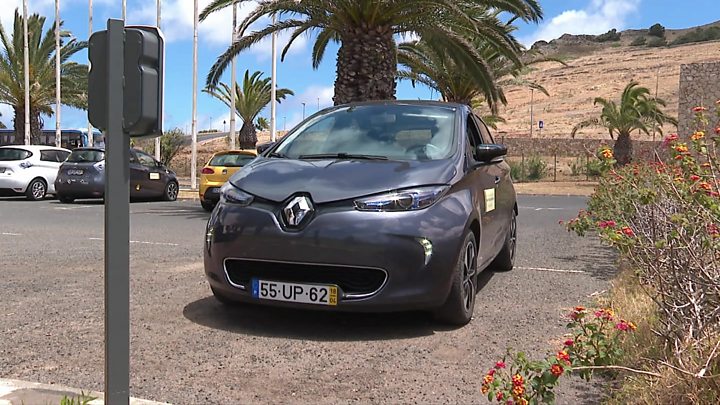In Joseph Heller’s Catch-22, the anarchic anti-hero Captain John Yossarian marvels at the beauty of the trap he finds himself in. To escape the war he is being forced to fight, he must prove he is crazy. But asking not to fight proves he is not crazy. Therefore he has to fight.
The trap is inescapable. “Yossarian was moved very deeply by the absolute simplicity of this clause of Catch-22 and let out a respectful whistle,” Heller wrote. “‘That’s some catch, that Catch-22,’ he observed.”
The two remaining contenders to replace Theresa May as Conservative Party leader and, by extension, British prime minister—Boris Johnson and Jeremy Hunt—now find themselves in a trap of almost equally simplistic beauty. To win the Conservative leadership race they must promise to succeed where May failed and take Britain out of the European Union, ideally by October 31, the new, twice-delayed deadline. But how?
The trap is this: There is no majority in Parliament to agree May’s negotiated deal enabling the United Kingdom to leave the EU in an orderly manner, with opposition centering around a 39 billion pound ($49 billion) divorce settlement and the “backstop” which ties Britain into the EU’s customs union after Brexit. And yet, there is also no majority in the House of Commons to leave without a deal because of fears over damage to the country’s economy and standing in the world. (Though Britain leaves the EU by default on October 31, with or without parliament’s consent, members of parliament have shown they are willing to enact legislative barriers to stop this happening.)
It’s the Brexit Catch-22 and it’s driving Britain’s political class crazy.
Read: The time Boris Johnson thought Trump was ‘out of his mind’
The race to replace May has—so far—been mired in this seemingly intractable riddle to which no candidate has shown a convincing solution. Neither of the final two contenders have shown they have any clear idea of how to do so. Johnson has simply said the U.K. “must” leave by October 31, deal or no-deal; Hunt, a multi-millionaire businessman, claims he has the entrepreneurial skills to change the withdrawal treaty, a deal the EU has said, repeatedly, cannot be changed.
The only candidates in the race offering different solutions, however unlikely, were knocked out in earlier rounds of the Conservative leadership race: the hardliner Dominic Raab suggested suspending parliament to bypass opposition to no-deal, but this was seen as too extreme (and anti-democratic) for most Tory MPs; and the dovish Rory Stewart who said the only solution was to stick with May’s deal and simply try to push it through parliament again, even though it had failed three times already.
To those inside 10 Downing Street who have tried, and failed, to escape the trap for the last two years, the unfolding scene is like watching a TV history documentary on repeat, only this time run as farce. The reality, say some of those involved in the negotiations with the EU, is that unless the equation changes, whoever succeeds May as prime minister will find themselves back in the same tangled web which suffocated her premiership. The crisis, like Catch-22, is one that cannot be escaped until the catch itself is changed—and, like Yossarian, that is not in the gift of the British prime minister. It is the system which is in control.
Only two bodies can undo this catch: the British Parliament, by changing its collective mind on the deal, allowing it to pass, or, alternatively, acquiescing to no-deal; or the European Union, by changing the terms of the divorce to make it easier for Parliament to agree to it, or by cutting the cord and ejecting Britain from the club unilaterally. Ultimately, if the British political class has not found a way out of the riddle, European leaders can simply refuse to extend the country’s membership of the EU and, at 11 p.m. U.K. time on October 31, Britain will no longer be a member of the EU, deal or no deal. Catch-22 resolved.
Read: Britons can’t help but make the European elections all about Brexit
In European capitals, notably Paris and Dublin, this is increasingly seen as the likely way out of the crisis. Arriving in Brussels yesterday, the Irish Prime Minister Leo Varadkar said while he had “endless patience” to keep extending negotiations with Britain to avoid no-deal, he was fast becoming a minority voice. Extensions, he continued, would likely only be granted if circumstances changed, and if time was needed for a general election or another Brexit referendum to break the impasse. “Some of my colleagues have lost patience, quite frankly, with the U.K., and there is enormous hostility to any further extension,” Varadkar said.
In Downing Street, an election has long been seen as the only way out of the crisis—if Parliament cannot bring itself to choose between deal or no-deal, a new parliament is needed. Yet for the Conservatives, even this escape hatch looks lethal. The party’s failure to deliver Brexit has seen its support in the polls collapse, sparking warnings from Hunt and others that should an election be called before Brexit, the party would be “annihilated.”
It means the one potential solution to the Brexit Catch-22—winning an electoral majority to take Britain out of the EU— might be its own such trap: Until the Conservatives manage to take Britain out of the EU, they will be punished at any general election for not having done so. (A significant number of Conservative MPs believe, however, that Johnson’s celebrity gives them a chance at any national poll.)
Is the next British prime minister really as trapped as Yossarian, though?
The quirks and flexibility of Britain’s unwritten constitution mean the answer to the question is unclear, but many Brexit supporters insist that the only reason the U.K. has not already left the EU is because May was insufficiently committed to the project to face down parliament’s opposition to leaving without a deal—a claim supported by some experts. They claim that Johnson—most of them support him over Hunt—simply has to refuse to bow to parliament and Britain will leave the EU by law on October 31.
Of course, parliament will always have the option of forcing a general election by voting down the government, or of organizing a second referendum, which, as Varadkar and other EU leaders have made clear, Brussels would be prepared to delay Brexit for.
The reality is no-one is certain. Whether Johnson or Hunt emerges as Britain’s next prime minister, the Brexit crisis is only likely to roll on because the catch remains—for now.
We want to hear what you think about this article. Submit a letter to the editor or write to letters@theatlantic.com.
https://www.theatlantic.com/international/archive/2019/06/boris-johnson-jeremy-hunt-brexit-catch-22/592258/
2019-06-21 13:53:38Z
CAIiEK1m8H8rQPCIMKzT3Z7voY0qFggEKg0IACoGCAowm_EEMKAiMMSWmwM



